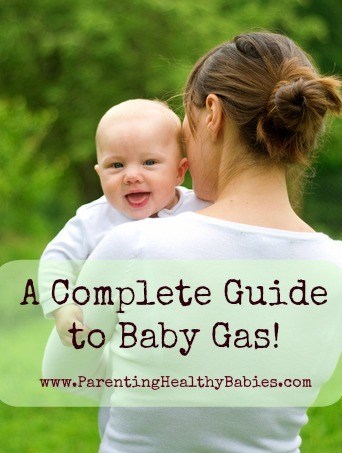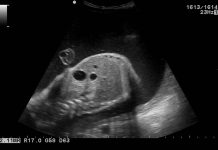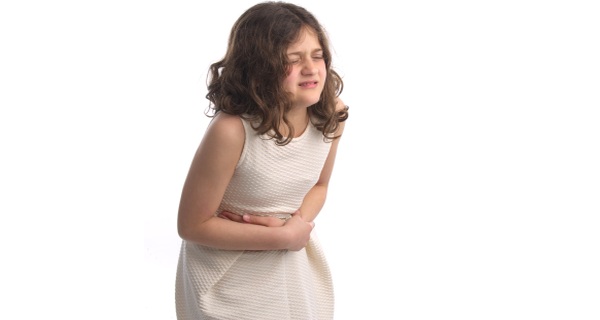Some of the common causes of why your baby farts a lot includes intake of certain gas producing foods by the mother, swallowing gas during feeding, intake of Citrus fruit juices, early introduction to certain food, excessive crying, to name a few.
Parents want to ensure their babies remain in good health. While most parents worry about skin rashes, sleeping patterns of babies as well as eating issues – some of them may also be worried about baby farts.
Farting is quite common in infants and growing babies and does not indicate any major health concern in general. If you are still concerned about baby farting then you should get the basics clear.
Why Your Baby Farts a Lot?: Signs and Symptoms
Farting in a baby is a clear indication that your child is very gassy, no more! If your baby farts a lot, it does not mean your child is sick or is unable to digest what you are feeding him. You do not have to run to the kitchen to make him something new! It just means that your baby has a lot of gas stuck in his system that is passing out in the form of farts. There can be many reasons why your child is gassy which we will cover in later sections.
Signs of Baby Farting a lot
A young baby is very sensitive and reacts to the smallest of changes in his surroundings. So, how can you be absolutely sure it is gas and not something else that is bothering him?
The thumb rule is to observe your child’s behavior. If your baby has a happy temperament and is generally happy, but only fusses when he is passing gas, it is normal and no reason to worry. Do not go by the noises they make and their faces turning red, if they are happy and smiling between the episodes.
If your child continues to be fussy even after farting and you find it hard to console him, it is a clear sign that he is very gassy and needs to be attended to.
What are the signs that your child is gassier than he should? When extra air gets trapped in your child’s tummy you will notice that he: tummy, you may notice that she:
- Burps
- Is very bloated
- Cries a lot
- Gets fussy
- Has cramps
- Farts
- Has a hard tummy
Be reassured, that your baby will get better as his digestive tract grows, And, within a few months the gas will no longer bother you and him.
Why My Baby Farts a lot?
If you think your baby farts a lot more than others at home, you are not wrong. Babies can be quite gassy and they can pass gas more than a dozen times per day. The reasons are:
Immature Digestive Tract
Your baby’s digestive tract is immature and growing still. The farts are just part of digestion in the body of the infant. When you feed the baby food or milk, the gas is produced in his or her digestive tract. It can be the result of digesting lactose, nutrients and protein in foods.
Intake of certain gas producing foods
Sometimes, you may find the baby farting more than usual and that can be caused by the intake of certain gas producing foods. This does happen in adults too. Eating a lot of legumes and cruciferous vegetables can lead to this. Even if the mother of an infant eats these, that can be passed from her to the baby through breast milk.
Similarly, the mother eating lots of citrus fruits and dairy products can lead to flatulence in infants in the same way.
Read: Foods to Avoid While Breastfeeding your baby
Swallowing Air Bubbles while Breastfeeding
It is also natural for babies to swallow air bubbles and this can be caused when they are breastfed. This can happen also when the babies are fed milk using feeding bottles. Small nipple based bottles are what make the babies swallow too many air bubbles as they try to suck milk.
Fruit Juices Can Cause Gas
It is also natural to see babies farting more than usual when they are given a lot of fruit juice. In taking Citrus fruit juices may lead to gaseousness in babies.
First introduction semi solid food
Some babies may face digestion issues when they are first introduced to semi solid and solid foods. Their digestive system needs some time to get used to new enzymes and foods. This can also lead to gaseousness in the digestive tract.
Read: Food to Avoid in your Baby’s Diet
Excess Crying Can Lead To Gas
Babies tend to cry when they feel changes and discomfort in the body or their surrounding environment. They also cry when they are hungry and thirsty. When they cry for various reasons, they intake a lot of air, which goes into their digestive tracts. This can later lead to gas formation.
Repercussions of Baby Farting
Baby farting is normal and treatable. If your child farts a lot it does not mean he is sick. The digestive tract in infants is quite immature and it copes poorly with gas and trapped air bubbles. This can lead to baby gas pain. If you find the baby farting is quite intense and is accompanied by fever, fussiness and irregularity of urination- there could be some underlying health issue.
If you have a rather fussy baby, the first that you should do is rule out any underlying health condition. As long as there is no serious medical issue to worry about, your best bet is to remain calm and try soothing tactics that can help your baby relax. A tight swaddle, rocking, a BPA free pacifier, and even a white noise machine can be of great help in soothing your child.
When Should You See the Pediatrician?
It is imperative that you do not take any chances, especially when it comes to your baby’s health. The same goes with farting. Though it is normal that your child burps and farts a lot, contact his doctor if:
- He does not have any bowel movements for more than a day.
- Has bloody stools
- Vomits incessantly
The above can be an indication of an underlying digestion problem.
You should also see a doctor if:
- Your child is very fussy and refuses to calm down.
- Your baby has a fever and the rectal temperature is 101 deg F or higher, as this can be an indication of an infection.
In certain rare cases, infant gas can also be the first symptom of a gastrointestinal problem. It is therefore important that you take your child to see the doctor if you feel the slightest of doubt that he is unwell.
Read about :
https://parentinghealthybabies.com/foods-to-avoid-in-your-babys-diet/














